2021 International Invention Innovation Competition in Canada (iCAN)
Miss Nicole Yanxi Guan, a student of the Bachelor of Social Sciences (Greater China Studies), has won the top prize at the 2021 International Public Policy Case Competition on Sustainable Development. Organized by Tsinghua University’s School of Public Policy and Management, it is one of the prominent international academic competitions in the field of public policy.
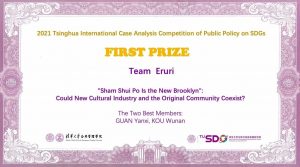
The competition this year was highly competitive, with 147 students coming from reputable universities across China and the world, including Peking University, Tsinghua University, Fudan University, Zhejiang University, The London School of Economics and Political Science, and the University of Michigan.
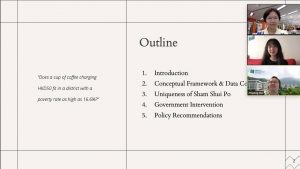
Miss Guan formed a team with a student from New York University, and conducted a case study entitled “Sham Shui Po is the New Brooklyn: Could New Cultural Industry and the Original Community Coexist?” Having survived three rounds of intense competition that took place from June to August, Miss Guan’s team was highly praised by the jury and won a cash prize worth US$3,000. The team was mentored by Dr Fox Zhiyong Hu, Associate Professor of the Department of Asian and Policy Studies who provided excellent guidance and support.
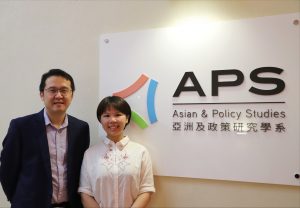
The manuscript of Mr Md Hossain Farid, PhD Researcher at the Department of Asian and Policy Studies, entitled “Coronavirus (COVID-19) Pandemic: Pros and Cons for China’s Soft Power Projection” has been accepted for publication in Asian Politics & Policy (peer-reviewed academic journal published by Wiley-Blackwell) for the October 2021 issue. In this study, Farid assesses the effectiveness of China transforming its ‘pandemic health diplomacy’ into soft power. Beijing has launched a high-tempo program of pandemic diplomacy through good deeds, to create a positive image and strengthens China’s soft power in the future. China has taken the lead in the global response to the COVID-19 pandemic through these initiatives. From the perspective of soft power theory, Farid clarified two assumptions: the coronavirus soft-power push of China is increased in developing regions heavily indebted to Beijing and where China has huge investment but shows a declining trend in Western European countries and the United States.
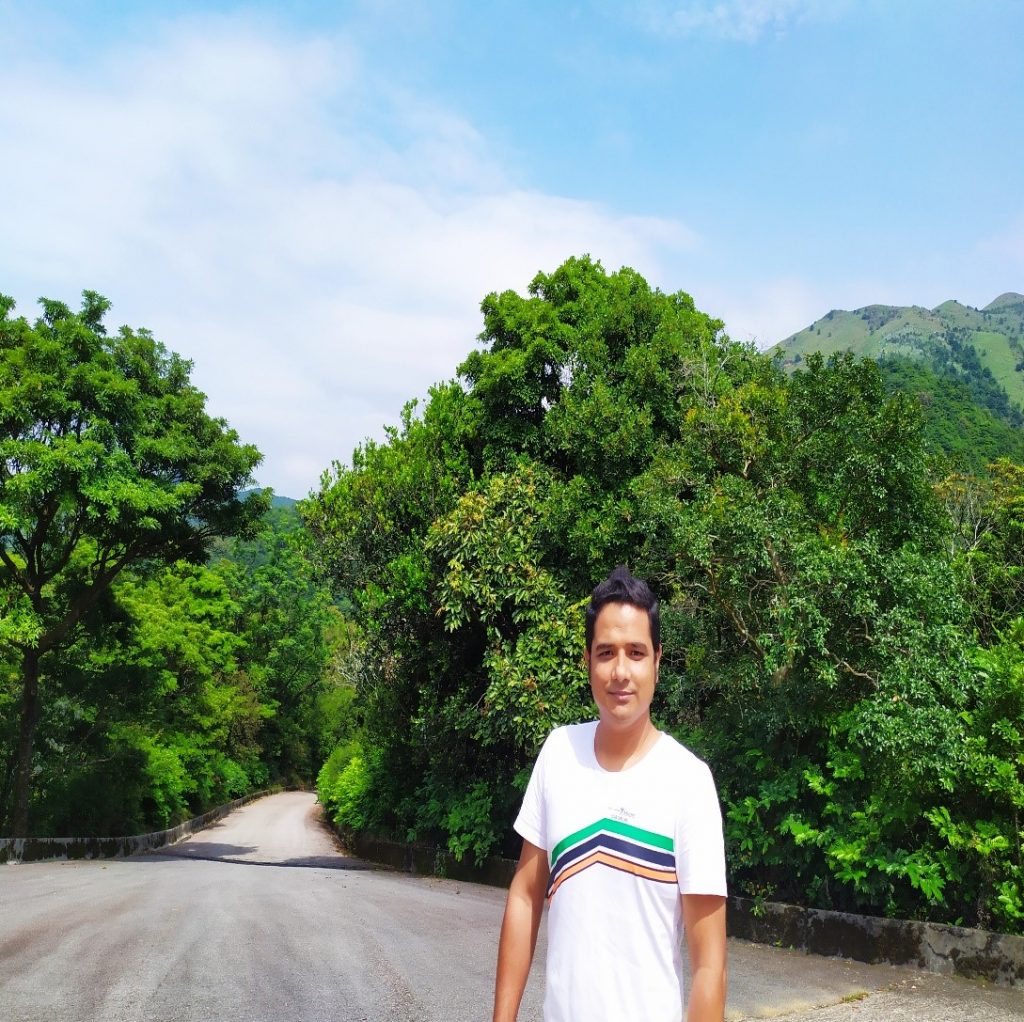
The Inaugural edition of the Canada-Hong Kong Public Affairs and Management International Summer School cum Policy Analysis Competition 2021 took place from August 16 to 23, 2021. It was co-organised by the Department of Asian and Policy Studies at The Education University of Hong Kong (EdUHK) and the Johnson Shoyama Graduate School of Public Policy, University of Saskatchewan (USask).
Given the pandemic and difficulties in air travel, the Programme took place virtually, with speakers and students logging in from territories across the globe – Canada, Mainland China, Hong Kong, India and Singapore. The unique format of the Programme was cited by students as one of its major draws. The first five days were devoted to faculty-led sessions in the mornings, which introduced students to various facets of public affairs and public management in different sectors around the world. These were complemented by tutorials and student cafés in the afternoon that focussed on policy analysis activities. The morning sessions featured academic faculty from EdUHK, USask, University of Regina, and Simon Fraser University as well as invited guests that were current and former public service practitioners. By adopting varied formats, including seminars, workshops, a movie screening and case studies; students gained insight and developed skills to understand real-world issues on a range of topics spanning – health, climate change, policy analysis, refugee issues, urban governance, eco-tourism, human resources management, data use; to name a few.
These sessions served as preparatory ground for the Policy Analysis Competition, which marked the culmination of the Programme. Teams were tasked with choosing a territory or country for which they had to define a pressing problem(s) with respect to COVID-19, diagnose its causes, evaluate the government response and make policy recommendations. Teams had the next 48-hours to organise themselves, choose their respective cases, undertake relevant research and prepare a presentation. The two teams winning the first prize and the first runner-up focussed, respectively, on Japan’s struggles in balancing economic recovery with curbing COVID-19 transmission and the issue of migrants in India during the pandemic-induced lockdown. The Programme received a very positive response. In their feedback, students appreciated it for the high level of professional organisation and for the introductory primer it provided on different policy topics. Other participants remarked upon the exceptional degree of international interaction and the excellent speakers. Most encouraging were the words of a student that noted the Programme ‘stimulated autonomy while guiding students to learn to incisively analyse public policy’.

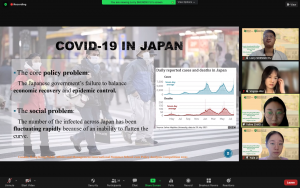
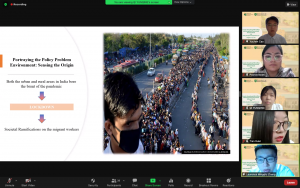
近日,香港特别行政区政府公布2021学年特区政府奖学金的获奖名单。香港教育大学亚洲及政策研究学系博士生邓凤怡(Vivien)同学荣获「一带一路」奖学金,总额为港币 168,400 元。此奖学金表彰邓凤怡同学的卓越成绩,亦是对她社会服务的充分认可。 香港特区政府于2008年成立 10 亿港元的政府奖学基金,旨在表扬本地与非本地学生的杰出表现,吸引更多优秀本地学生留港升学和更多出色的非本地学生来港就学。为加强与「一带一路」沿线国家的教育合作,吸引更多杰出的非本地学生来港升学,香港特区政府于2016/17学年起增设「一带一路奖学金」,授予来自「一带一路」沿线地区的学生。
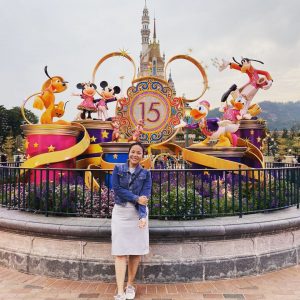
邓凤怡(Vivien)同学是一名土生土长的新加坡人,为亚洲及政策研究学系公共政策与管理专业的硕士毕业生,现正在导师和经纬副教授的指导下攻读博士学位。她的职业生涯十分丰富,本科毕业于美国布法罗大学(University at Buffalo)心理学专业,凭借优异的成绩在凯尼休斯学院(Canisius College)取得第一个硕士学位。毕业之后,她回到新加坡从事七年的专业社工服务。尔后毅然决定重返校园,负笈香江,来到香港教育大学求学。她曾与经纬副教授合作,在著名国际学术期刊Health Policy发表学术论文。论文总结了亚洲四个经济体在面对人口快速老化时进行医疗服务体系整合的实践,全文请https://www.sciencedirect.com/science/article/pii/S0168851021000075。
5月24日,香港特别行政区大学教育资助委员会(教资会, UGC)正式公布了2020年大学研究评审(Research Assessment Exercise, RAE)结果。研究评审工作是教资会评核各公立大学表现的重要一环,旨在推动学者进行世界级研究,并追求卓越。评审工作对标国际顶尖大学,评估香港高校在各个领域的研究质素及其相对优势。参考先进国家大学研究评审的经验,2020年的评审中首次加入了学者研究影响力(research impact)评估,旨在评价自然科学和社会科学学者将学术研究应用于实践、并增进社会福祉的能力。评审专家委员会由世界顶尖大学学者与本港著名学者组成。
在政治学、公共政策、公共行政和国际关系学科门类中,包括香港大学、香港中文大学、香港科技大学在内的全部八所公立大学均提交了学者研究影响力报告,其中只有两项研究影响力评估获全部评审专家一致评分为四星,即卓越(outstanding),两位学者均来自香港教育大学亚洲及政策研究学系,分别为协理副校长(研究)周基利教授及副系主任(研究与发展)和经纬副教授。两位学者在全港公立大学该领域众多优秀学者中脱颖而出,证明了教大公共政策学者在科学研究及推动社会变革、政策创新方面的杰出表现。
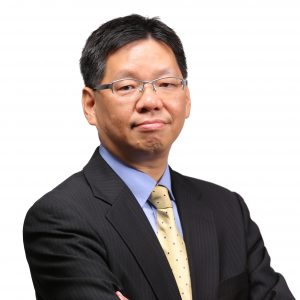
周基利教授是国际知名的社会政策和老年学专家,其学术引用率常年高居社会科学文献索引系统(SSCI)全球前1%。周教授的公共政策研究积极服务与香港社会福利政策改革,为政府改善民生建言献策。他关于香港社会扶贫和收入保障问题的众多研究成果在特区政府政策规划中起到了重要作用,也被众多国际组织和NGO引用。他所倡导的很多社会福利改革现在已经变成现实,从中受益的社会弱势群体数以百万计。周教授热心政策倡导,透过新闻媒体广泛呼吁广大市民正确规划退休保障,摒弃对贫穷人口的偏见,体现了一位杰出社会政策学者的人文关怀与社会责任。
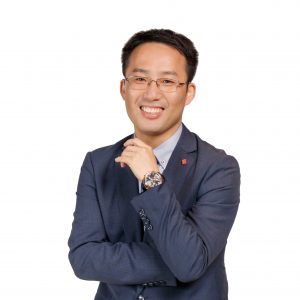
和经纬博士长期从事医疗卫生政策与社会福利改革方面的研究,他的研究范围涵盖中国大陆、香港以及东亚其他地区。他的公共政策研究不仅以传统学术出版物形式呈现,更积极透过公众倡导及政策咨询等多种方式产生广泛的影响力。在2016年世界银行、世界卫生组织及中央三部委的权威医改研究报告中,和博士多达六篇研究成果被引用,成为被引用最多的国际学者之一。2014年,当香港特区政府推动医疗筹资改革时,和博士的政策研究也为自愿医保改革提供了有价值的政策建议。他热心参加政策倡导,多次接受中国国际广播电台、亚洲卫视、凤凰卫视、美国哥伦比亚广播公司、RTHK等广播电视频道的采访,并在中国大陆、香港、新加坡、欧洲等主流报章发表政策见解。
On 17 May 2021, Hong Kong’s Chief Executive hosted a reception at the Hong Kong Science Park to honour awardees of the International Exhibition of Inventions of Geneva 2021 Special Edition, which according to the Swiss Consul of Hong Kong had attracted over 600 entries. Professor Woo Chi-Keung attended the reception as one of the two gold medal winners from the EdUHK for his Online Assessment System for Individual Scores (OASIS) that implements a transparent mechanism for scoring individual contributions to a team project’s completion. Using team members’ peer assessment data to compute performance-based scores, OASIS discourages free riding before project commencement and punishes free riders upon project completion. Adopted by 28 teachers across 9 universities in the U.S and Asia, OASIS has improved team-based learning of ~1,800 students enrolled in 23 diverse courses.










